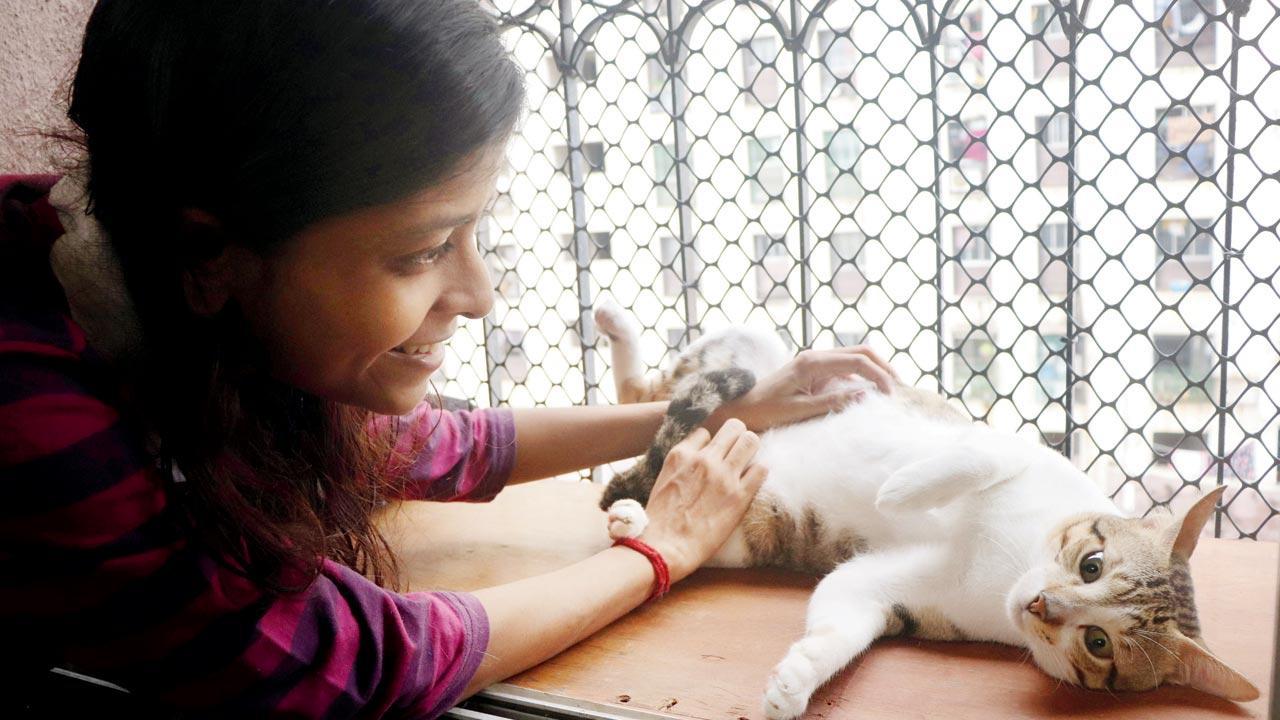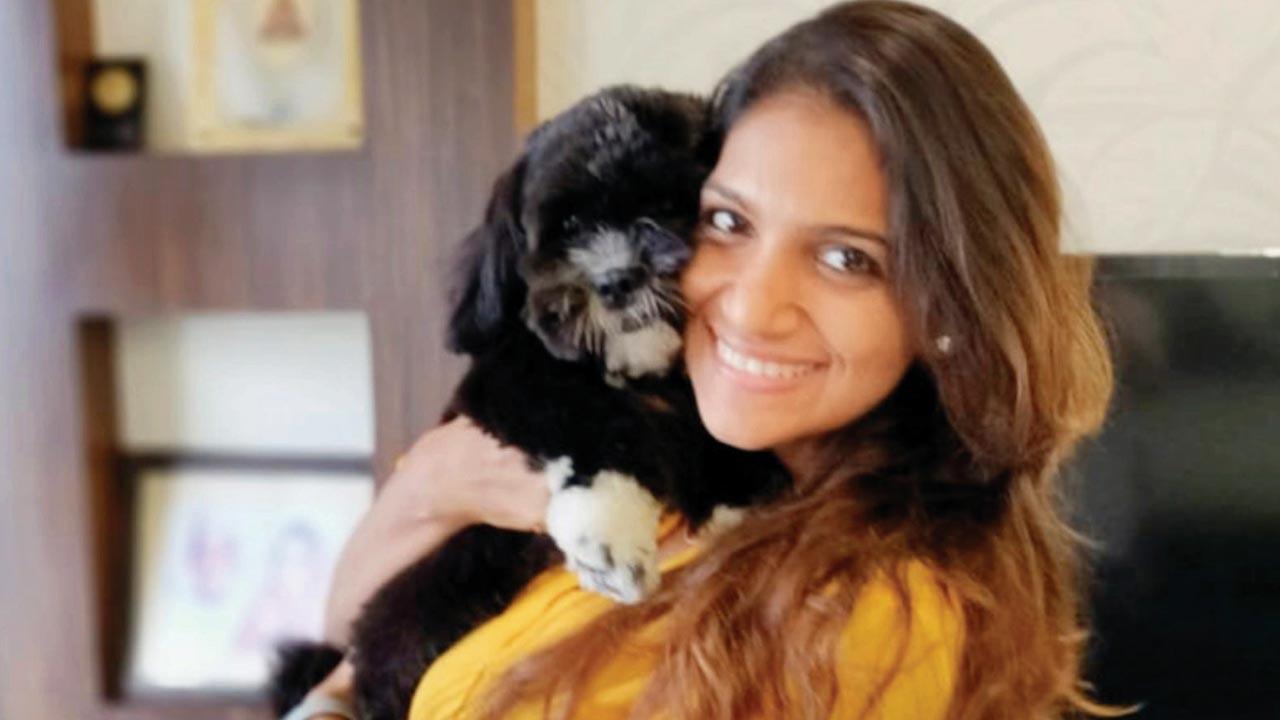It turns out, there is something called too much love. And guess who it is stressing out in the pandemic?

PR professional Sejuti Ghosh with her cat, Snowy, at her Kandivli home. Her two other cats, Joey and Joe, are not “human-friendly”, she says. Pic/Anurag Ahire
Last year, when the lockdown was imposed to control the spread of the Coronavirus, the only silver lining for this writer was that she’d now get to spend more time with her three cats. And cuddle we did—sometimes, without consent.
ADVERTISEMENT
Vets are now raising a red flag over this unsolicited attention that felines are finding overbearing.
Cats Protection, a UK charity dedicated to rescuing and rehoming stray, unwanted or homeless cats and educating people about their welfare, has warned that cats are experiencing stress that can act as a threat to their lives as pet parents are spending more time at home. Our furry companions are reportedly developing dangerous conditions that are associated with stress, including blocked bladder in the case of male cats, and cystitis in both female and male cats.
 Sakshi Jain Ajmera
Sakshi Jain Ajmera
Mumbai-based animal communicator Sakshi Jain Ajmera, too, has come across “stressed out” cats since the outbreak. “What happened in the pandemic is that we, humans, began looking for emotional support and, in moments of crisis, pets offered us comfort and calm. But not all [pets] enjoy excessive affection.” This, she adds, interferes with the animal’s “rest and repair” cycle. “In our selfishness of wanting to cuddle, we are unwittingly disturbing their resting period.” A cat’s level of interaction and activity hinges on whether it’s being able to recharge its energy battery. While this may be the most cat thing we’ve possibly heard, it can apply to dogs too. For instance, Ajmera’s Cavapoo, she says, is “a cat in a dog’s body”. “He doesn’t like people, won’t pee in front of strangers, and wants his space. So, different pets have different personalities, whether cat or dog They can be introverts and extroverts, and it’s important we understand this.”
Sejuti Ghosh, a PR professional, lives with three cats at her Kandivli apartment. “While Snowy doesn’t mind an extra cuddle, Joey is the happiest when he gets belly rubs, quite unusual for a cat,” she says. Joe, however, dislikes any overt show of affection and prefers his own company. According to Ghosh, if you do go in for a hug with your cat, it is usually quite easy to tell if they are unhappy with the situation—they may hiss, puff up their tail, or try to scratch you. Claustrophobia isn’t just for humans; cats can have it too. And it can manifest in different ways, shares Ajmera. For instance, they may experience difficulty in breathing or sudden choking. Look out for these signs, say experts. “If you approach your cat and it slinks away, moves into a crouched position, it’s a strong indicator that it wants space. If they try to run or jump away, then you can also be confident that they don’t want physical contact!” reads an instruction on the Cat Protection website. Ears turned back, sudden grooming and dilated pupils are other signals for us to lay off.
Ajmera often has a hard time driving this home to pet parents. “There are times when I’ve explicitly told them that their cat or dog doesn’t like to be dressed up, but they still go ahead because it’s ‘so cute’. That said, I’ve also come across cats that love being dressed. You have to take your pet’s will and personality into consideration.”
If your cat doesn’t like to cuddle, don’t take it personally, Ghosh assures. “Some cats just don’t like being picked up, or aren’t physically affectionate. But all three of my boys definitely love me and express this in their own unique ways. “ Ajmera’s advice to pet parents is to spend quality time with their cats and dogs and, but if the animal is not interested, leave them alone.
 Subscribe today by clicking the link and stay updated with the latest news!" Click here!
Subscribe today by clicking the link and stay updated with the latest news!" Click here!







